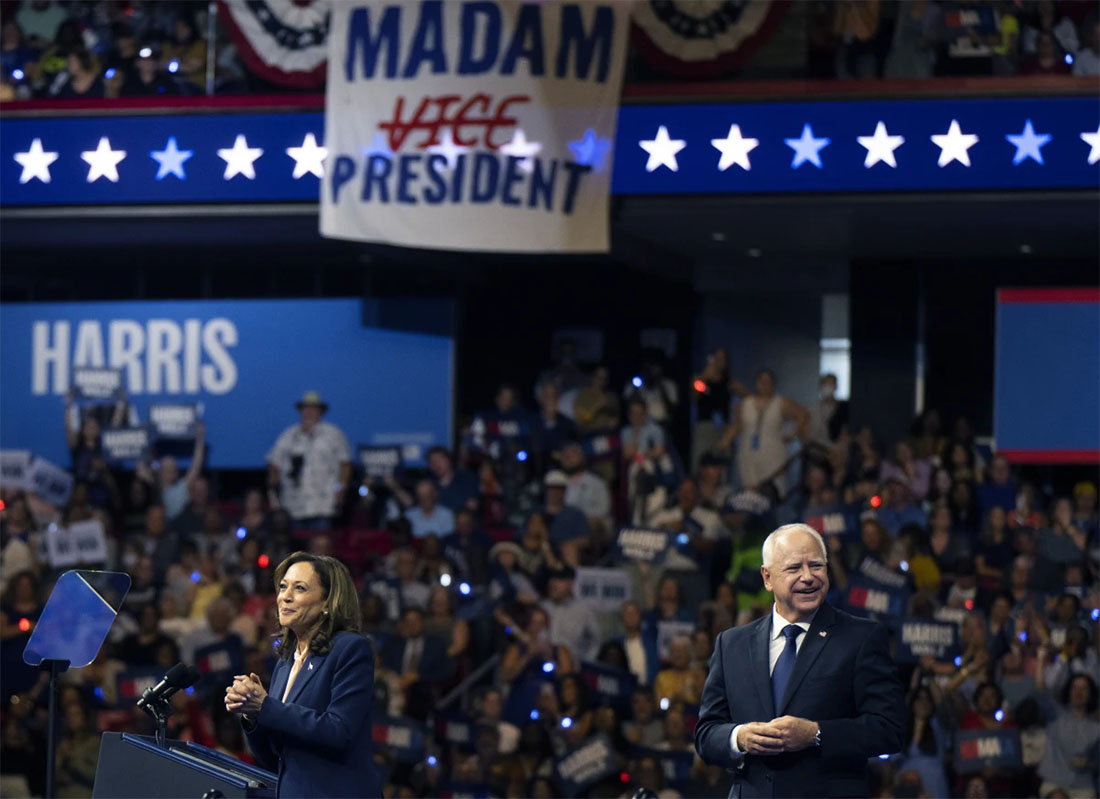
Photo Credit: Getty Images
The most turbulent presidential campaign in generations is now set to play out as a 90-day sprint across two fronts: the Rust Belt and the Sun Belt.
With her choice of a Midwestern governor as a running mate, Vice President Kamala Harris pushed to shore up “Blue Wall” states — Wisconsin, Michigan and Pennsylvania — that Democrats need to win to keep the White House. Harris, the Democratic presidential nominee, had already signaled that she would also contend in Sun Belt states that increasingly seemed out of reach for President Joe Biden.
Harris, the first Black woman and woman of South Asian descent to head a major party ticket, and former President Donald Trump, the Republican nominee, will also be locked in Sun Belt competition to win Georgia, Arizona, Nevada and North Carolina, an electoral map that has expanded since Biden’s decision to withdraw from the race.
Her ascension and the enthusiasm it generated across racial and generational lines forced mapmakers in both parties to redraw the battle lines of the campaign, Republicans and Democrats agree. Biden’s difficulties — especially among younger voters and nonwhite voters in the Sun Belt — had required him to win all three Blue Wall states and hold off Trump in Democratic-leaning Minnesota to have a chance at an Electoral College majority.
“Black women candidates have a unique ability to build multiracial coalitions,” said Democratic campaign strategist Lauren Groh-Wargo, who managed Stacey Abrams’ two campaigns for Georgia governor. “That’s the opportunity Kamala presents especially in the South and the Sun Belt, which have the most racially and ethnically diverse states of the battlegrounds.”
Chuck Coughlin, a longtime Republican consultant in Arizona, said the switch from Biden to Harris was a jolt in his state and beyond: “Once he stepped aside it was as if you released a torrent of energy.”
The vice president, a California native whom Republicans lambaste as a “San Francisco liberal,” on Tuesday unveiled Minnesota Gov. Tim Walz as her running mate. A 60-year-old Army National Guard veteran, public school teacher and former high school football coach who once represented a wide swath of rural and small-town Minnesota in Congress, Walz adds a distinctive Rust Belt brand to the Democratic ticket.
“Tim Walz can play well in the parts of Pennsylvania and other Rust Belt states where Joe Biden was stronger than Democrats sometimes are,” said Mike Mikus, a veteran of Democratic campaigns who is based in Pittsburgh. “And Kamala Harris is really well positioned for the suburbs and into the cities.”
















